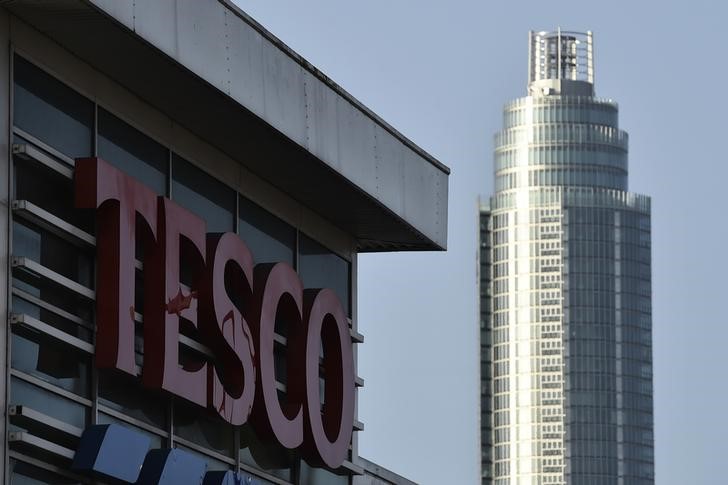By Geoffrey Smith
Investing.com -- Tesco (LON:TSCO) has mission creep in reverse.
Barely two months after Dave Lewis, the pilot of its turnaround, announced his intention to step down as CEO after declaring “mission accomplished”, the mission is shrinking again.
The U.K.’s biggest supermarket chain looks to be returning to its roots after confirming that it’s considering a sale of its Thailand and Malaysia businesses after receiving interest from a third party. A deal could free up billions for reinvestment and for juicing up relatively lackluster shareholder returns.
Tesco (LON:TSCO) shares were up 6.8% after early trading in London Monday at their highest in seven weeks. The U.K. FTSE 100 was down 0.1%, and the FTSE 250 down 0.6% as traders pulled in their horns ahead of Thursday’s general election. The broader Stoxx 600 benchmark was effectively unchanged at 407.46 as of 5:25 AM ET (1025 GMT).
The move is consistent with its withdrawal from Japan and South Korea in the last decade, and raises the question of whether it will also retreat from its businesses in central Europe. Like the Asian businesses, the operations are profitable but require investment to stay competitive as a slowing global economy increases competition.
The profitability of both the Thai and Malaysian businesses, which boast operating margins twice that of the U.K. business at 6%, means that Tesco (LON:TSCO) will be able to bag an attractive price for them. The price of $9 billion mooted by analysts in the Sunday Times at the weekend would be around 20 times their operating earnings this year, extrapolating from the first half’s figures.
That may seem expensive but, given that the buyers are rumored to be local tycoons, who may not attach the same kind of country risk to the investment that U.K.-based analysts would, and who don't face meaningful checks on their spending from minority shareholders, it’s not entirely unreasonable either.
The same price tag would imply that the two businesses account for over a quarter of Tesco’s value, despite only representing less than 10% of sales. That should make it an easy decision for the outgoing Lewis, and should also leave incoming CEO Ken Murphy in an enviable position, with all the financial resources he needs to set his own course when he takes over in the summer.
